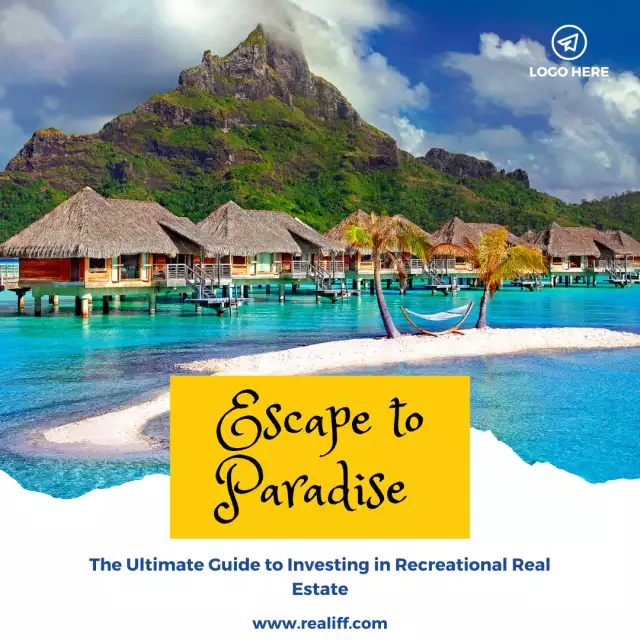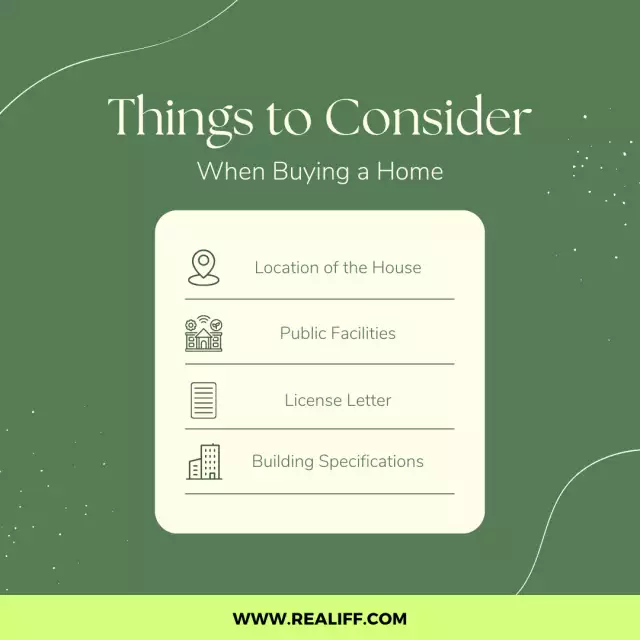Escape to Paradise: The Ultimate Guide to Investing in Recreational Real Estate
Escape to Paradise: The Ultimate Guide to Investing in Recreational Real Estate
If you're looking for a way to invest in property that offers both personal enjoyment and the potential for financial gain, you might want to consider recreational real estate. Recreational real estate refers to properties that are primarily used for leisure or recreational activities, such as vacation homes, cabins, or cottages. These types of properties are typically located in scenic areas, such as near mountains, lakes, or forests, and offer a variety of outdoor activities, such as hiking, skiing, fishing, hunting, or boating.
In this guide, we'll cover everything you need to know about recreational real estate, including why it's a popular investment option, what to consider when purchasing a property, and how to make the most of your investment.
Why Invest in Recreational Real Estate?
There are several reasons why people choose to invest in recreational real estate:
- Personal enjoyment:Many people purchase recreational real estate as a second home or vacation property so they can enjoy the outdoors and recreational activities in a beautiful and relaxing setting. It can be a great way to escape the stresses of everyday life and spend time with family and friends.
- Potential for income:Recreational real estate can also be a good investment opportunity. Many people choose to rent out their property when they're not using it, which can provide a source of passive income. This can be especially lucrative in areas that are popular with tourists or outdoor enthusiasts.
- Long-term appreciation:The value of recreational real estatemay appreciate over time, especially in areas that are becoming increasingly popular with tourists and outdoor enthusiasts. This can result in a significant return on investment if you choose to sell the property later on.
What to Consider When Purchasing Recreational Real Estate
Before you invest in recreational real estate, there are several factors to consider:
- Location:The location of the property is one of the most important factors to consider. Look for properties that are located in areas that are desirable for outdoor activities, such as near mountains, lakes, or forests. Also, consider the accessibility of the property, as well as the availability of nearby amenities, such as restaurants, shops, and attractions.
- Type of property:Recreational real estate can take many forms, from rustic cabins to luxurious vacation homes. Consider the type of property that best suits your needs and budget. Also, consider whether you want a property that's ready to move into or one that requires renovations.
- Property features:When evaluating a property, consider the features that are important to you. For example, if you're an avid skier, you might want a property that's located near a ski resort. If you enjoy boating, you might want a property with access to a lake or river.
- Financing:Financing a recreational property can be more difficult than financing a primary residence. Be prepared to put down a larger down payment and pay a higher interest rate. You may also need to consider alternative financing options, such as a home equity loan or a cash-out refinance.
- Maintenance and management:Recreational properties require ongoing maintenance and management, especially if you're renting out the property. Consider whether you have the time, resources, and expertise to manage the property yourself, or whether you need to hire a property manager.
The Benefits of Investing in Rental Properties
Making the Most of Your Investment
Once you've purchased a recreational property, there are several ways to make the most of your investment:
- Rent out the property:Renting out your property when you're not using it can provide a source of passive income. Consider using a vacation rental platform, such as Airbnb, HomeAway, or VRBO, to advertise and manage your rental.
- Use a property management company:If you don't have the time or expertise to manage your property yourself, consider hiring a property managementcompany. They can take care of tasks such as cleaning, maintenance, and booking management.
- Join a rental program:Some resorts and communities offer rental programs for property owners. These programs handle marketing, reservations, and guest services, and may also provide additional amenities and services for guests.
- Participate in a vacation home exchange program:Vacation home exchange programs allow property owners to swap their vacation homes with other owners around the world. This can be a great way to travel and experience new destinations while also saving on lodging costs.
- Enjoy the property yourself:Don't forget to enjoy your recreational property yourself! Make time to visit the property and participate in your favorite outdoor activities. Invite family and friends to join you and create memories that will last a lifetime.
Conclusion
Recreational real estate can be a great investment opportunity for those who are interested in both personal enjoyment and potential financial gain. When evaluating a property, consider factors such as location, type of property, property features, financing, and maintenance and management. Once you've purchased a property, consider renting it out, using a property management company, participating in a rental program, joining a vacation home exchange program, and, of course, enjoying the property yourself. With the right investment strategy, recreational real estate can provide a source of passive income and long-term appreciation while also offering a beautiful and relaxing retreat for you and your loved ones.







